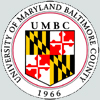| |||||||||||||||||||
Tips:  Range on the Protein: Protein ID Protein Position Domain Position: 
|
|---|
Weblogos are Copyright (c) 2002 Regents of the University of California
| DMDM_info@umbc.edu | 1000 Hilltop Circle, Baltimore, MD 21250 | Department of Biological Sciences | Phone: 410-455-2258 |




 The MutT pyrophosphohydrolase is a prototypical Nudix hydrolase that catalyzes the hydrolysis of nucleoside and deoxynucleoside triphosphates (NTPs and dNTPs) by substitution at a beta-phosphorus to yield a nucleotide monophosphate (NMP) and inorganic pyrophosphate (PPi). This enzyme requires two divalent cations for activity; one coordinates the phosphoryl groups of the NTP/dNTP substrate, and the other coordinates to the enzyme. It also contains the Nudix motif, a highly conserved 23-residue block (GX5EX7REUXEEXGU, where U = I, L or V), that functions as metal binding and catalytic site. MutT pyrophosphohydrolase is important in preventing errors in DNA replication by hydrolyzing mutagenic nucleotides such as 8-oxo-dGTP (a product of oxidative damage), which can mispair with template adenine during DNA replication, to guanine nucleotides.
The MutT pyrophosphohydrolase is a prototypical Nudix hydrolase that catalyzes the hydrolysis of nucleoside and deoxynucleoside triphosphates (NTPs and dNTPs) by substitution at a beta-phosphorus to yield a nucleotide monophosphate (NMP) and inorganic pyrophosphate (PPi). This enzyme requires two divalent cations for activity; one coordinates the phosphoryl groups of the NTP/dNTP substrate, and the other coordinates to the enzyme. It also contains the Nudix motif, a highly conserved 23-residue block (GX5EX7REUXEEXGU, where U = I, L or V), that functions as metal binding and catalytic site. MutT pyrophosphohydrolase is important in preventing errors in DNA replication by hydrolyzing mutagenic nucleotides such as 8-oxo-dGTP (a product of oxidative damage), which can mispair with template adenine during DNA replication, to guanine nucleotides. No pairwise interactions are available for this conserved domain.
No pairwise interactions are available for this conserved domain.









